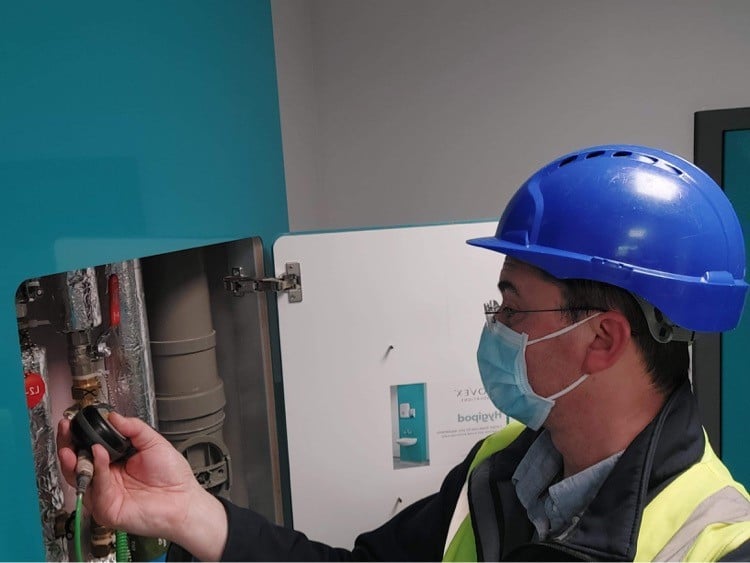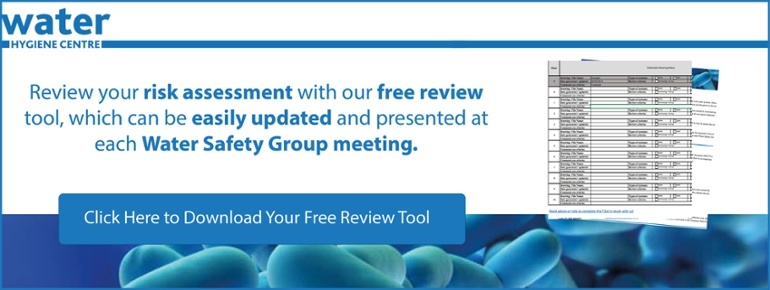It is all well and good commissioning an external service provider to complete your Legionella risk assessments, but have you ever considered those persons, the ‘risk assessors’, who will be looking at your properties and water systems?
The objective of this blog is help those with responsibility to commission risk assessments to think not just about ‘getting them in place’ but to consider the ability of the individual completing them.
What do Guidance documents have to say….
- HSE, ACoP L8;
- Dept. of Health, HTM 04-01;
- British Standards, BS8580:2010;
- Legionella Control Association [LCA], recommended code of conduct;
- UKAS, RG9.
Each of the above Guidance documents point to same word – “competence”.
Whether it be a builder, butcher, baker or the candlestick maker, you, the ‘client’, should be confident that they are ‘competent’ to do the job!
Delving a little deeper to understand exactly what this alludes to, can leave you scratching your head…
Examples of schemes that organisations / individuals can use to prove their competence across other disciplines include:
- Competent Person Scheme;
- GAS safe register;
- Electrical Competent Person Scheme;
- WaterSafe register;
One could argue that the LCA offers a register of members who may deliver Legionella risk assessments.
The focus is still on the individual Risk Assessor, there are various training courses [accredited] they can attend to help them with becoming a Risk Assessors, but does attending these courses prove their ‘ompetene?
What is Competence?
The HSE define ‘competence’ as:
“Competence can be described as the combination of training, skills, experience and knowledge that a person has and their ability to apply them to perform a task safely. Other factors, such as attitude and physical ability, can also affect someone’s competence."
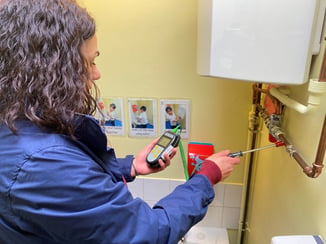 Building on this definition, the acronym below can be used to determine a person’s ‘competence’….
Building on this definition, the acronym below can be used to determine a person’s ‘competence’….
Skills
Knowledge
Attitude
Training
Experience / Ability
For a Legionella Risk Assessor, it can mean the following;
Skills
-
An eye for detail! To see a water system and become a detective to ‘sniff out’ any hidden risks;
-
An analytical and methodical mind to understand water systems, their complexities and relationships;
-
The ability to communicate effectively with a wide range of individuals to extract the right information and determine a level of understanding;
-
Accurate data capture whilst onsite and accurate reporting.
Knowledge
-
Applicable and relevant guidance documents;
-
Understanding of water / risk systems.
Attitude
-
The willingness to ensure all parts of the water system are assessed – avoid the ‘drive by’ or ‘cut and paste’ risk assessor;
-
Consistency with every risk assessment;
-
The desire to learn and research new systems / technologies.
Training
-
An active CPD Plan;
-
Be up-to-date with new technologies
-
Receive Legionella training – be it an external courses [accredited] and internal courses.
Experience / Ability
-
To have assessed relevant water / risk systems repeatedly and in different situations;
-
Physical ability to complete the risk assessment i.e. inspection of water / risk systems.
If a Risk Assessor can demonstrate each of the above, they could deem themselves ‘competent’.
Help for those Responsible for appointing….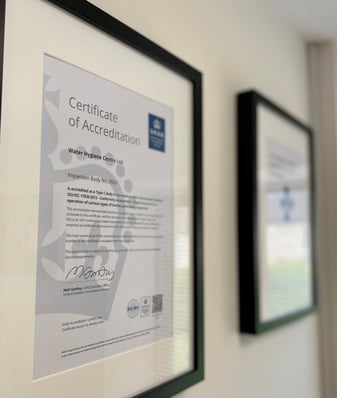 In reality, when choosing a Risk Assessor, you would not know all of the information above. To help those responsible for appointing to determine the ‘competence’ of a risk assessor, then seeking evidence the Risk Assessor is a member of ‘LCA’ and / or UKAS Accreditation to ISO 17020.
In reality, when choosing a Risk Assessor, you would not know all of the information above. To help those responsible for appointing to determine the ‘competence’ of a risk assessor, then seeking evidence the Risk Assessor is a member of ‘LCA’ and / or UKAS Accreditation to ISO 17020.
Both the LCA and UKAS set out criteria for Risk Assessors to meet and both organisations undertake annual audits of Service Providers.
In the experience of the Water Hygiene Centre, UKAS arguably undertakes an annual in-depth audit, where Risk Assessors are witnessed on site and experience is quantified. It is also a requirement of UKAS that Risk Assessors must have completed five ‘witnessed’ assessments for each category of water / risk system before being authorised to complete assessments of water / risk systems alone.
Great! So there is a means of determining ‘competence’, but is this a guarantee?
A Good Risk Assessor v A Good Risk Assessment
Sporting analogy coming up….
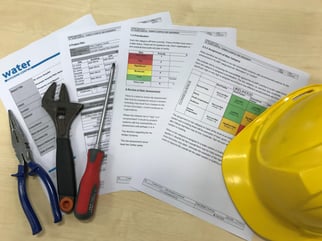 Similar to a sporting context a player (Risk Assessor) can be made to look better than they are by playing in a good team or with good tactics (Risk Assessment method).
Similar to a sporting context a player (Risk Assessor) can be made to look better than they are by playing in a good team or with good tactics (Risk Assessment method).
Risk assessment methods can be so rigid and ‘fool proofed’ that most people with a knowledge of water systems can capture the data required with the use of prompts. The method will guide the risk assessment process through prompts / questions.
Although this can be a good thing, by ensuring the correct data is captured and a consistent report is produced, it can also limit / restrict a Risk Assessor and their ability.
By following a strict method, be it on a PDA device or paper form, it can ‘lead’ the Risk Assessor too much. The Risk Assessor can become over reliant on the method and more concerned with ticking the right box rather than thinking about what is in front of them, resulting in sometimes confused, meaningless or impracticable recommendations being generated. Back to the sporting analogy, the players’ talents have now been wasted.
It could be argued that a true test of a Risk Assessor is to send them to a site with a blank piece paper and let them think for themselves. Yes, the report might be lacking in all the data that is deemed necessary, although this ‘blue sky’ approach allows the Risk Assessor to ‘think outside of the box’ and discover / identify issues that a defined method which leads could have missed / not allowed the capture of.
Conclusion
In summary, those who are looking to appoint a risk assessor need to consider their competence. Competence has been defined by the HSE as ‘S.K.A.T.E’. Each of these criteria need to be determined. How to determine, HTM04-01 outlines those appointing a risk assessor actually interviews the Risk Assessor to assist with ensuring competence. A measure of competence can further be demonstrated with an accredited Risk Assessment method.
Further reading> A Day in the Life... of a Legionella Risk Assessor
Feel free to reach out if you have any questions about the issues mentioned above or if you would like to consult with one of our experts on water hygiene.
Editors Note: The information provided in this blog is correct at date of original publication - March 2018.
© Water Hygiene Centre 2019


